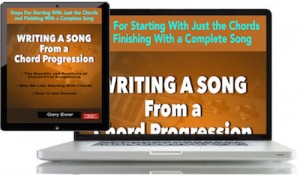Because classical and pop music usually sound so completely different, you might wonder if there’s anything from classical music a pop songwriter could apply to their songs. There are some obvious things that transfer easily from classical to pop:
- Chord progressions work the same way. There may be progressions that are more popular in pop than classical, but how they work is not new. The progression I-V-vi-ii-IV-I-IV-V-I (D A Bm F#m G D G A) works really well in most pop genres, but was the progression of choice by Johann Pachelbel back in the late-1600s when he composed his famous “Canon”.
- Orchestrations sound great in pop music. Some of today’s pop genre performers use the orchestra, often pretty much the same way Mozart might have done. And certainly film scoring, even though it’s often done now using orchestral samples, still uses largely the same scoring techniques that classical musicians have used.
- The general structure of vocal melodies bears a strong resemblance to how classical musicians composed. Much of the difference between classical and pop has to do with performance style, and no one would argue that a Beethoven symphony would be confused with a Justin Bieber song. But the way a melody in today’s pop genres is constructed is similar to classical structure: the importance of repetition, the thinking of a melody as a line, and the general moving upward to build musical momentum and energy. Listen to Bach’s “Jesu Joy of Man’s Desiring” for a good example. Now listen to an old chestnut, “You Make Me Feel Brand New” (Thom Bell, Linda Creed, recorded by The Stylistics), and you’ll hear a similar kind of melodic construction. Ignore performance style and instrumentation, and both melodies have a very similar feel.
 If you like composing your songs by starting with a chord progression, you need “Writing a Song From a Chord Progression.” It will show you the best way forward. It comes as part of the 10-eBook Deluxe Bundle of songwriting materials. READ MORE
If you like composing your songs by starting with a chord progression, you need “Writing a Song From a Chord Progression.” It will show you the best way forward. It comes as part of the 10-eBook Deluxe Bundle of songwriting materials. READ MORE
Beyond those three more obvious qualities, there are other things that today’s songwriters can learn from classical music:
- Contrast loud and soft. Orchestras are large beasts, and you will dull the effect of that large orchestra if you have everyone playing all the time. Good orchestrators will choose the fully-orchestrated moments carefully. Suggestion for today’s songwriters: Save your loudest, fullest moments for the chorus and possibly the bridge. Scale instrumentation back in verses.
- Move melodies higher to gain musical energy. Listen to this gorgeous song by German composer Robert Schumann, “Ich grolle nicht“, performed by Jonas Kaufmann. You can hear how Schumann carefully crafts the melody to creep upward, then downward, but ultimately higher and higher as he seeks to bolster the musical energy of the song. Suggestion for today’s songwriters: Use the inherent energy that comes from the singer’s higher notes to build energy in a very natural way.
- Practice, and practice everything. Pop music and performance values improvisation and spontaneity as a vital part of the style. But the downside is that pop musicians often under-value the importance of practicing what they do. Songwriters can definitely practice aspects of writing, just as classical composers used to spend a great deal of time working out compositional exercises. Performers of pop music need technique, every bit as much as a classical performer needs. Suggestion for today’s songwriters (and performers): Practice your songwriting, your scales, your chord changes, and your performance technique in general.
There’s no doubt that classical music is usually done on a much larger, more grandiose scale than pop. And no one is saying that pop music is just classical “by any other name.” There are obvious differences, and it can also be said that good pop musicians have a thing or two they can teach classical musicians.
But classical music has a very long history, one that a pop musician would be well-advised to explore to at least some degree. It may surprise you how similar the old world is with the new. And when you do explore, I think you’ll agree with me that 90% of the difference between classical and pop music is style.
 Written by Gary Ewer. Follow Gary on Twitter.
Written by Gary Ewer. Follow Gary on Twitter.
 “The Essential Secrets of Songwriting” eBook Bundle packages explore 11 principles of songwriting, and will take your own music to a new level of excellence. Right now, download a FREE COPY of “Creative Chord Progressions”, when you get the 10-ebook Bundle.
“The Essential Secrets of Songwriting” eBook Bundle packages explore 11 principles of songwriting, and will take your own music to a new level of excellence. Right now, download a FREE COPY of “Creative Chord Progressions”, when you get the 10-ebook Bundle.










